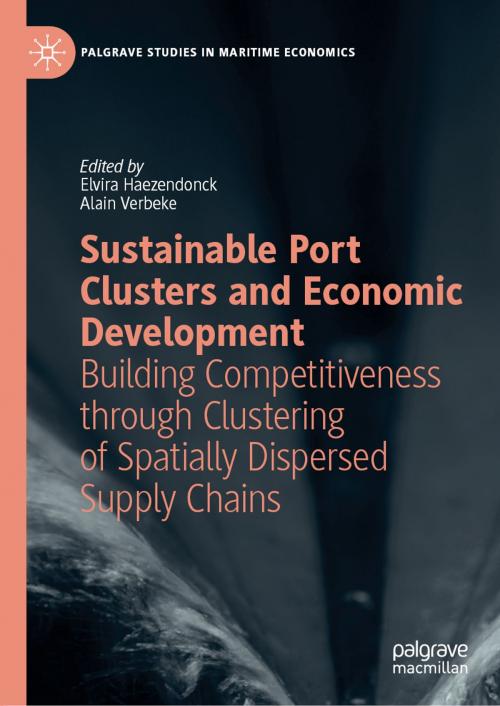Sustainable Port Clusters and Economic Development
Building Competitiveness through Clustering of Spatially Dispersed Supply Chains
Business & Finance, Economics| Author: | ISBN: | 9783319966588 | |
| Publisher: | Springer International Publishing | Publication: | March 18, 2019 |
| Imprint: | Palgrave Macmillan | Language: | English |
| Author: | |
| ISBN: | 9783319966588 |
| Publisher: | Springer International Publishing |
| Publication: | March 18, 2019 |
| Imprint: | Palgrave Macmillan |
| Language: | English |
This book belongs to the Port Economics and Global Supply Chain Management strand of the Palgrave Studies in Maritime Economics book series, commissioned by Hercules Haralambides.
This book addresses the strategic alignment between port authorities and their supply chain partners, with a focus on governance challenges. Many port (authority) managers are engaged in efforts to improve their strategic alignment with business partners in their proximate geographic region, yet the economic objectives pursued can vary widely. These objectives can include improvements in port competitiveness and stability of traffic flows, as well as better access to scarce resources such as land and capital, or simply more control over the logistics chain. Using various Benelux seaports as case studies, the authors of this volume show that improving strategic alignment can involve a wide variety of different governance choices, ranging from top-down to bottom-up alliance formation, from project-driven to multi-activity collaboration, and from long-term contracting to full-fledged mergers.
This book with state-of-the-art insight on modern port governance will be of interest to port managers around the globe, as well as to lecturers and students in maritime educational programs.
Chapter 4 is available open access under a Creative Commons Attribution 4.0 International License via link.springer.com.
This book belongs to the Port Economics and Global Supply Chain Management strand of the Palgrave Studies in Maritime Economics book series, commissioned by Hercules Haralambides.
This book addresses the strategic alignment between port authorities and their supply chain partners, with a focus on governance challenges. Many port (authority) managers are engaged in efforts to improve their strategic alignment with business partners in their proximate geographic region, yet the economic objectives pursued can vary widely. These objectives can include improvements in port competitiveness and stability of traffic flows, as well as better access to scarce resources such as land and capital, or simply more control over the logistics chain. Using various Benelux seaports as case studies, the authors of this volume show that improving strategic alignment can involve a wide variety of different governance choices, ranging from top-down to bottom-up alliance formation, from project-driven to multi-activity collaboration, and from long-term contracting to full-fledged mergers.
This book with state-of-the-art insight on modern port governance will be of interest to port managers around the globe, as well as to lecturers and students in maritime educational programs.
Chapter 4 is available open access under a Creative Commons Attribution 4.0 International License via link.springer.com.















